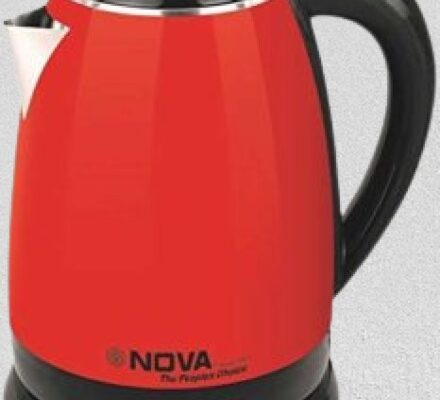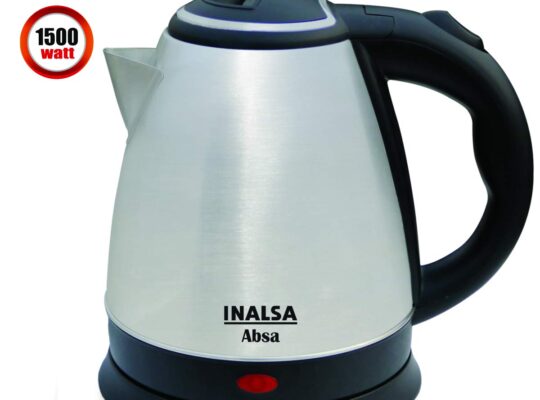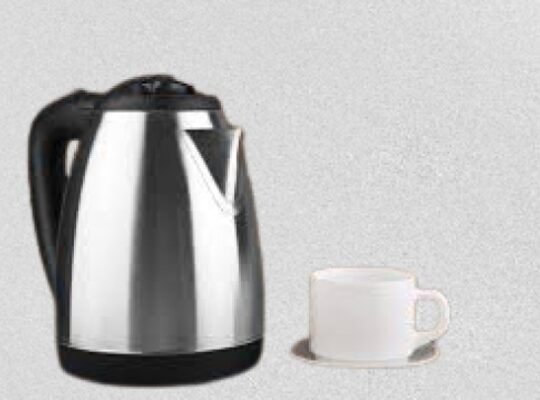Boiling eggs might seem simple, but achieving the perfect texture can be tricky. With an electric kettle, you can easily control the timing and temperature, ensuring consistently delicious results. Whether you prefer soft, medium, or hard-boiled eggs, there are specific minutes to keep in mind. Plus, there are helpful tips to prevent cracked shells that could ruin your breakfast. Curious about the exact timings and techniques to master your egg game? Let’s explore!
Key Takeaways
- For soft-boiled eggs, cook for 4-6 minutes; medium-boiled for 7-9 minutes; and hard-boiled for 10-12 minutes after boiling starts.
- Use room temperature eggs and add vinegar or salt to prevent cracking during boiling.
- Fill the kettle with enough water to fully submerge eggs, avoiding overcrowding for even cooking.
- Peel boiled eggs under running water to minimize mess and store in the refrigerator with a label for freshness.
- Troubleshoot by adjusting cooking time for desired doneness and using older eggs if shells stick.
Why Use an Electric Kettle for Boiling Eggs?
Using an electric kettle for boiling eggs can be a game-changer in your kitchen routine.
With its rapid heating capabilities, you’ll save time while ensuring your eggs cook evenly. The automatic shut-off feature provides peace of mind, allowing you to focus on other tasks without worrying about overcooking.
Plus, the kettle’s design means you can boil multiple eggs without taking up valuable stovetop space. You’ll also appreciate the energy efficiency compared to traditional methods.
Just fill the kettle with water, add the eggs, and let the kettle do the work. You’ll enjoy perfectly boiled eggs without the fuss.
It’s a hassle-free solution that makes meal prep simpler while keeping safety at the forefront. Additionally, many electric kettles, like the KENT 16069 Super Egg Boiler, come with safety mechanisms to ensure a worry-free cooking experience.
Step-by-Step Guide to Boiling Eggs in Your Kettle
Boiling eggs in your electric kettle isn’t only efficient but also incredibly simple.
First, place your eggs in the kettle, ensuring they’re not overcrowded. Next, add enough water to submerge the eggs completely, but don’t exceed the maximum fill line.
Place eggs in the kettle without overcrowding, and add water to fully submerge them without exceeding the maximum fill line.
Secure the lid and plug in the kettle. Turn it on, and wait for the water to reach a boil. Once boiling, the kettle will automatically switch off for safety.
Let the eggs sit in the hot water for a few minutes, depending on your desired firmness. Afterward, carefully remove the eggs using tongs, as they’ll be hot.
Finally, cool them under cold running water to stop the cooking process. Enjoy your perfectly boiled eggs!
Timing Is Everything: How Long to Boil Your Eggs
While achieving the perfect boiled egg may seem challenging, understanding the timing can make all the difference. For soft-boiled eggs with a creamy center, aim for 6 to 7 minutes. If you prefer a slightly firmer yolk, go for 8 to 9 minutes.
For hard-boiled eggs, 10 to 12 minutes is ideal, ensuring the yolk is fully set yet still moist.
Always start timing once the water reaches a rolling boil. It’s essential to keep an eye on the clock to prevent overcooking, which can lead to a rubbery texture and gray rings around the yolk.
After boiling, plunge your eggs into an ice bath for a few minutes to stop the cooking process and make peeling easier. Enjoy your perfectly timed eggs!
Tips for Preventing Cracked Shells
To keep your eggs from cracking during the boiling process, start with room temperature eggs instead of straight from the fridge.
Adding a splash of vinegar or a pinch of salt can also help strengthen the shells.
Finally, aim for a gradual temperature change by bringing your eggs to a simmer rather than a rapid boil, ensuring they cook evenly and intact.
Use Room Temperature Eggs
Using room temperature eggs can greatly reduce the chances of cracked shells when boiling. Cold eggs straight from the fridge are more likely to crack due to the sudden temperature change.
To guarantee your eggs stay intact, follow these tips:
- Let eggs sit out for about 30 minutes before boiling.
- If you’re in a hurry, place them in warm water for 10-15 minutes.
- Store eggs at room temperature to maintain freshness.
- Avoid placing eggs directly from the fridge into boiling water.
- Use eggs that are a few days old for better results.
Add Vinegar or Salt
Adding a splash of vinegar or a pinch of salt to your boiling water can make a world of difference when it comes to preventing cracked eggshells.
Vinegar helps to strengthen the eggshell, while salt raises the boiling point of water, creating a gentler cooking environment. When you add either ingredient, the eggs are less likely to crack due to sudden temperature changes.
Just a tablespoon of vinegar or salt will do the trick! Make certain to stir it into the water before gently lowering your eggs in.
This small step can save you from those frustrating mishaps and guarantee your boiled eggs come out perfectly intact. Enjoy your beautifully boiled eggs with confidence!
Gradual Temperature Change
When you take eggs straight from the fridge and plunge them into boiling water, the sudden temperature change can cause cracks in the shells. To prevent this, you can gradually warm the eggs before cooking.
Here are some helpful tips:
- Let eggs sit at room temperature: Allow them to warm up for about 30 minutes.
- Use warm water: Start with lukewarm water and slowly increase the temperature.
- Crack the eggs slightly: This helps release pressure inside the shell.
- Add salt or vinegar: This can strengthen the egg whites, minimizing leaks if cracks do occur.
- Consider steaming: Steaming eggs can create a gentler cooking environment.
Additionally, using an electric kettle can help you achieve the perfect temperature for boiling eggs efficiently.
Perfecting the Yolk: Soft, Medium, and Hard Boiled
When it comes to perfecting your boiled eggs, the yolk’s consistency can make all the difference.
Whether you crave a runny soft yolk or a firm hard one, timing is your secret weapon for achieving those ideal results.
Let’s explore how to master the art of boiling eggs to satisfy your tastes!
Yolk Consistency Preferences
Some might argue that the yolk is the crown jewel of a boiled egg, and getting it just right can elevate your breakfast to new heights.
Whether you prefer a soft, creamy yolk or a firm, crumbly one, knowing your preferences is key.
Here’s how different yolk consistencies can enhance your meal:
- Soft Boiled: Silky and runny, perfect for dipping toast.
- Medium Boiled: A balance of creamy and firm, ideal for salads.
- Hard Boiled: Fully set, great for on-the-go snacks.
- Custard-like: A unique texture, excellent for gourmet dishes.
- Crumbly: Perfect for egg salad or garnishing soups.
Choose your yolk consistency wisely, and you’ll savor every bite, ensuring a delightful experience.
Enjoy the art of boiling!
Timing for Perfect Results
Achieving the perfect boiled egg hinges on precise timing, and knowing exactly how long to cook your eggs can make all the difference. Here’s a quick guide to help you determine the ideal cooking times for soft, medium, and hard-boiled eggs.
| Egg Type | Cooking Time | Yolk Consistency |
|---|---|---|
| Soft Boiled | 4-6 minutes | Creamy, runny |
| Medium Boiled | 7-9 minutes | Slightly firm |
| Hard Boiled | 10-12 minutes | Fully cooked |
For safety, always start with cold water and guarantee your eggs are fresh. Adjust your timing based on your kettle’s performance, and enjoy perfectly cooked eggs tailored just for you!
Easy Cleanup and Storage Tips for Boiled Eggs
Although boiling eggs can be a simple task, you might find that the cleanup and storage can be a little challenging.
To make your experience smoother, follow these easy tips:
- Use a non-stick kettle to reduce residue.
- Rinse your kettle immediately after boiling to prevent stains.
- Store boiled eggs in a clean container, preferably in the refrigerator.
- Label your container with the boiling date for freshness.
- Peel eggs under running water to minimize mess.
- Regularly clean your kettle to maintain its heating efficiency and ensure optimal performance.
Frequently Asked Questions
Can I Boil Eggs in Any Type of Electric Kettle?
You can boil eggs in many electric kettles, but make certain yours has a proper boiling function. Avoid kettles without temperature controls or safety features, as they might not heat evenly or could cause accidents. Stay safe!
How Many Eggs Can I Fit in My Kettle at Once?
You can typically fit six to eight medium eggs in your kettle, but it depends on the kettle’s size. Always guarantee there’s enough water to cover the eggs for even cooking and safety.
Do I Need to Preheat the Kettle Before Boiling Eggs?
No, you don’t need to preheat the kettle before boiling eggs. Just fill it with water, add the eggs, and turn it on. This guarantees even cooking while keeping everything safe and simple. Enjoy your eggs!
Can I Use Cold Eggs Straight From the Fridge?
You can use cold eggs straight from the fridge, but be cautious. Sudden temperature changes can crack them. Consider letting them sit at room temperature for a bit to minimize the risk of breakage.
What Should I Do if My Eggs Are Difficult to Peel?
If your eggs are tough to peel, try cooling them in ice water right after boiling. This helps separate the membrane from the shell. Gently tap and roll them to loosen any stubborn bits before peeling.
Conclusion
Using your electric kettle to boil eggs is a game-changer! With just a few minutes and some simple tips, you can achieve perfectly cooked eggs every time. Whether you prefer them soft, medium, or hard-boiled, mastering this method not only saves time but also guarantees delicious results. So, gather your eggs, set your kettle, and enjoy the satisfaction of a flawless breakfast. You’ll never go back to traditional boiling again! Happy boiling!


